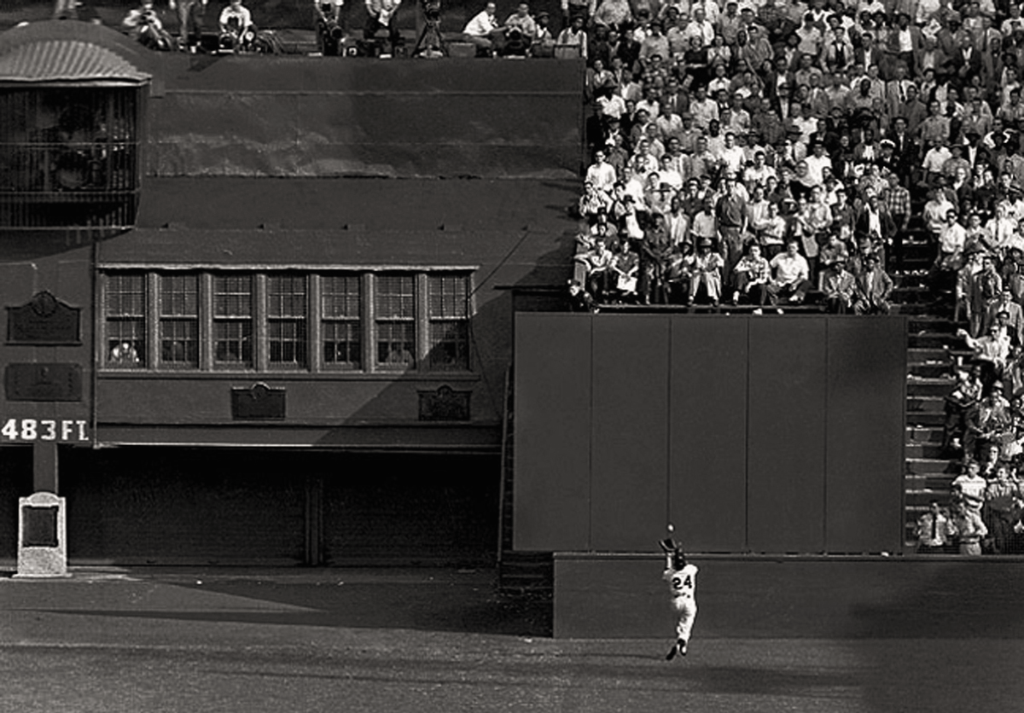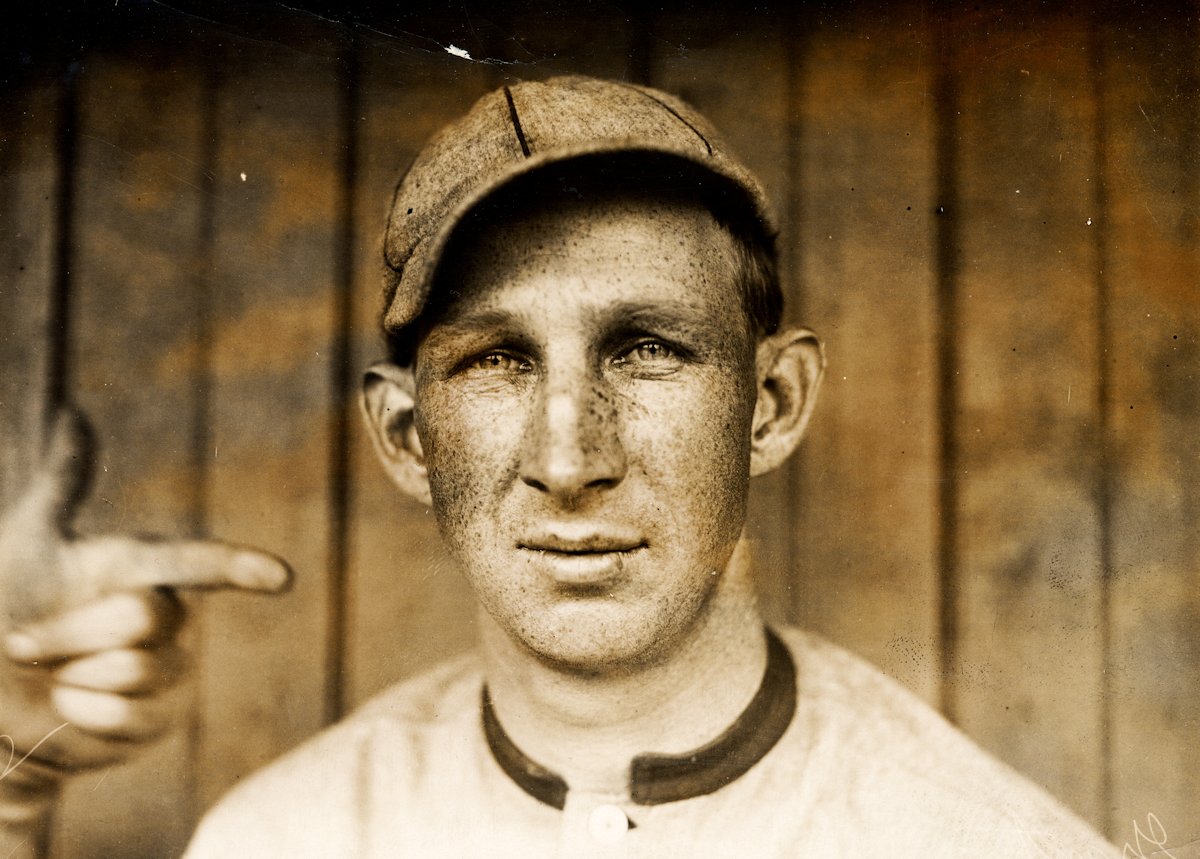“Harvard Eddie” Grant and the fallen baseball players of World War I
101 years ago this week, U.S. Army Capt. Eddie Grant was killed in action on the Western Front. “Harvard Eddie” was a fascinating character: soldier, scholar, lawyer, and third baseman — playing ten seasons in the Major Leagues before becoming one of the first baseball veterans to volunteer for military service. He was one of eight big league baseball players to die during the war. Here are their stories:
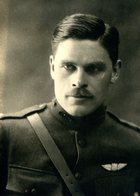
On April 21,1914 New York Yankees skipper Frank Chance called on a 20-year-old rookie named Tom Burr to take over at center field in a close game against the Washington Senators. Burr was pulled before he could hit and no one hit the ball to him in what would mark the last game both Burr and Chance (yes, of the famed Chicago Cubs “Tinkers to Evers to Chance” double-play combination) would play.
Four years later Burr was called up again — this time flying warplanes for the U.S. Air Service’s 31st Aero Squadron. On Oct. 12, 1918, just one month before the armistice, Lt. Burr’s plane collided with another flyer during gunnery training in France, sending the former major leaguer plunging to his death into Lake Cazaux.
Harry Glenn played six games for the St. Louis Cardinals in 1915, then joined the Army and was training to become an aviation mechanic when he died of pneumonia on the same day as Burr. Harry Chapman who played five seasons in the National, American, and Federal leagues before joining the Army would also die of pneumonia just nine days later. Then on Nov. 8, former Chicago White Sox outfielder Larry Chappell, who had signed on with the Medical Corps, passed away from the flu.
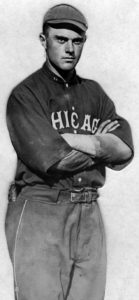
Like Burr, the Pittsburgh Pirates’ Newt Halliday also played in just one professional game — struck out by Brooklyn Robins’ future Hall of Fame hurler Rube Marquard. Halliday contracted tuberculosis while serving at Naval Station Great Lakes (Ill.) and died before he left the United States.
Ralph Sharman signed with Connie Mack’s Philadelphia Athletics as the 1917 season was ending, hitting .297 in 13 games. Sharman joined the field artillery at season’s end and drowned while training in the Alabama River at Camp Sheridan.
On Sept. 15, 1912, the Detroit Tigers sent a 6’4″ German righthander named Robert “Bun” Troy to the mound to face Walter Johnson and the Washington Senators. Troy pitched six scoreless innings but was pulled in the seventh after allowing four runs on nine hits in his only Major League game. On October 7, 1918, Sgt. Troy — fighting his native countrymen with the 80th (U.S.) Infantry Division — was killed by an enemy round to the chest while fighting southeast of Verdun, France.
Three of the former professional baseball players that died during World War II had only played one game each. Two played parts of one season, and two more played a handful of years for a handful of teams. That wasn’t the case with Eddie Grant.
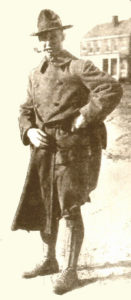
Grant graduated Harvard University in 1905 after starring on both the basketball and baseball squads. That same year he was called up for two games with the American League’s Cleveland Naps when Nap Lajoie developed a serious case of sepsis from being spiked by an opposing player’s cleat. Grant spent the next four seasons with the National League’s Philadelphia Phillies, where he would become the team’s starting third baseman. During the off-season in 1908 and 1909 Grant attended Harvard Law School, and supplemented his baseball income for the remainder of his career by practicing law when not playing baseball.
When Germany declared war on the United States, the 34-year-old Grant set his law practice aside and joined the Army, who made him a captain after he completed officer training. Grant was given command of the 307th Infantry’s “H” Company, whose soldiers deployed to France in May 1918 for final training. Serving on the Western Front during the bloody Meuse-Argonne campaign, Grant’s company was called upon to rescue the “Lost Battalion” — several companies of U.S. doughboys that had been surrounded by the Germans. On Oct. 5, after four straight days of combat, all of the officers in Grant’s battalion were killed or wounded. As the battalion commander was carted off the battlefield by stretcher bearers, he ordered Capt. Grant to take charge of the outfit.
Just then, an enemy artillery shell hit the Americans’ position, wounding two of Grant’s lieutenants. As he yelled for more men to evacuate the wounded, another round scored a direct hit on Grant, killing him instantly.
On May 30, 1921 a five-foot-high plaque was unveiled honoring Grant in center field. Every Memorial Day until the Giants abandoned the Polo Grounds in 1957 the club would decorate Grant’s memorial with a wreath in honor of their fallen hero.
“I am going to try to be an officer,” Grant wrote as he entered military training. “I don’t know how much of a success I shall make of it. I had determined from the start to be in this war if it came to us, and if I am not successful as an officer I shall enlist as a private, for I believe there is no greater duty that I owe for being that which I am – an American citizen.”
